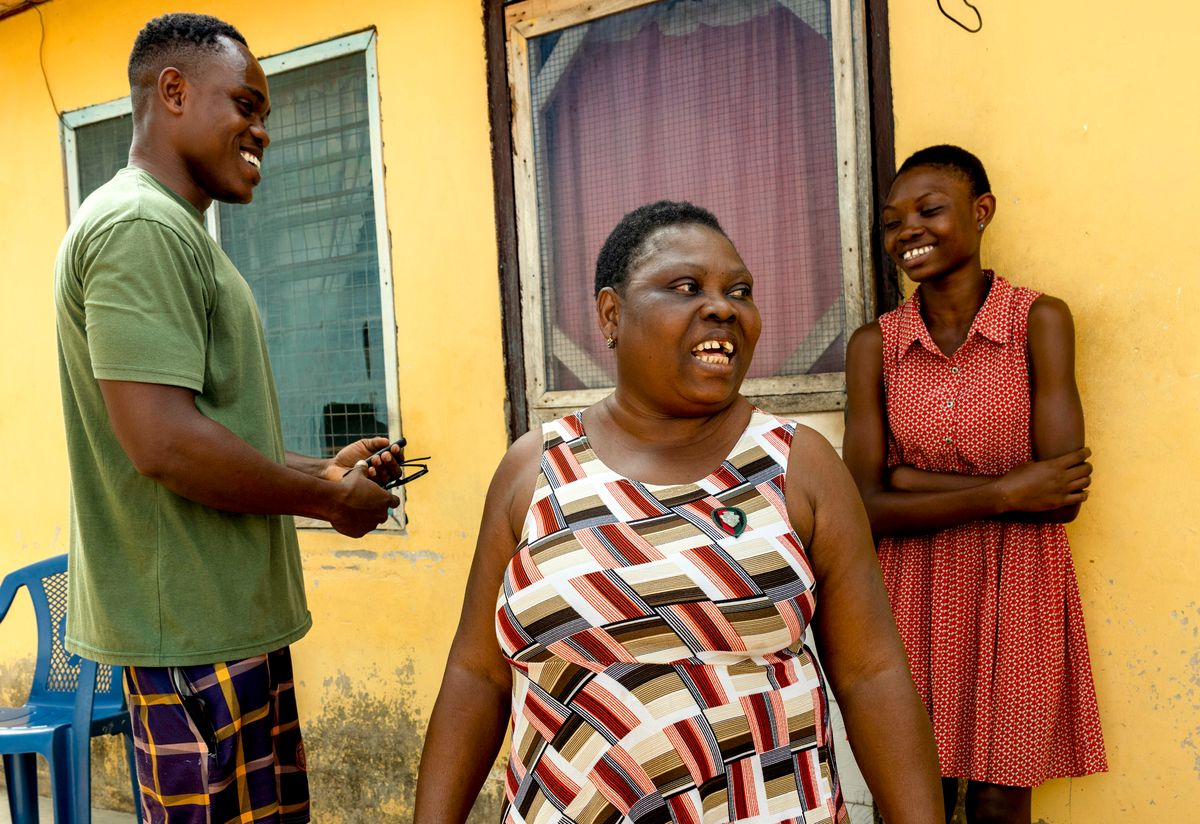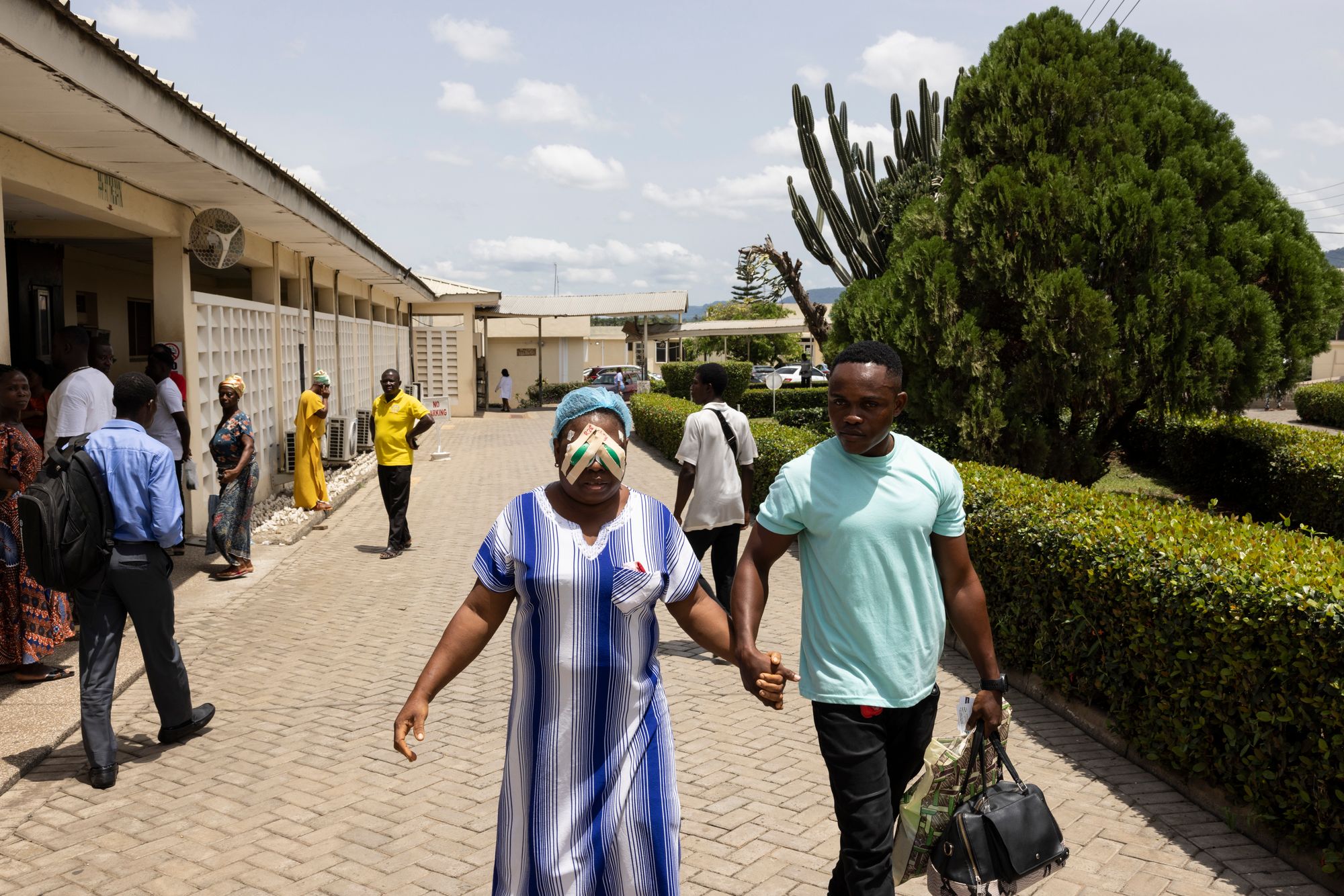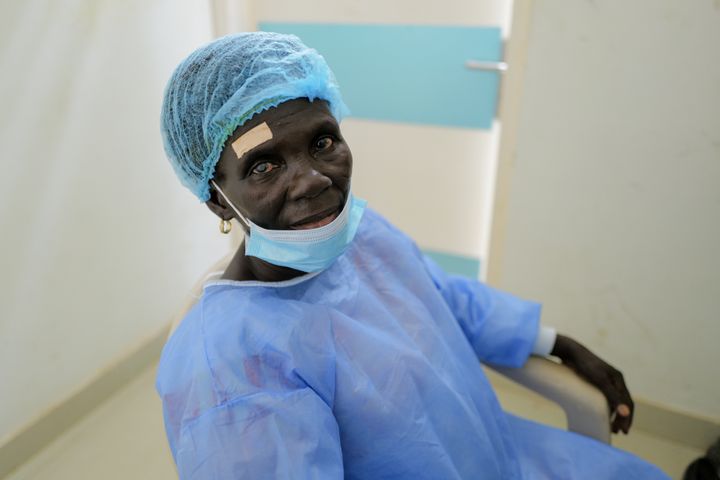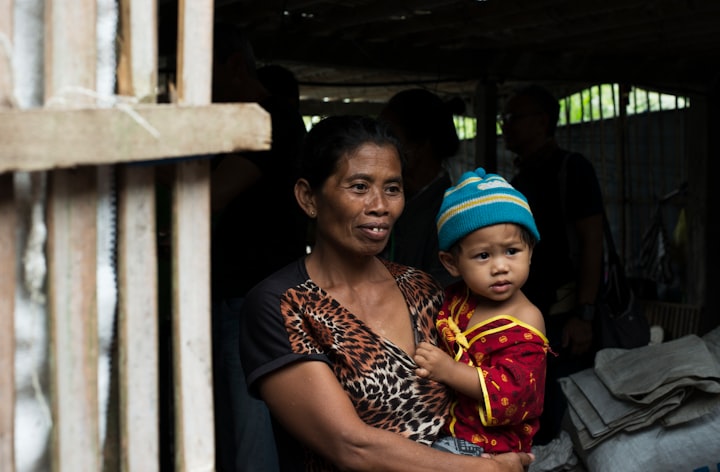Bridging the Gap: Ghana

In the heart of West Africa lies Ghana, a nation known for its rich cultural heritage, vibrant cities, and warm hospitality. Yet, beneath this surface lies a silent epidemic that affects a significant portion of the population - visual impairment and blindness caused by cataracts.
Recent statistics reveal a concerning reality: out of Ghana's 31 million residents, 329,560 suffer from severe visual impairment, while 579,040 face moderate impairment. Shockingly, 54.8 per cent of these cases are attributed to cataracts, a largely preventable and treatable condition. It is vital to shed light on Ghana's battle against cataract-related blindness, exploring the reasons behind the alarming numbers and what steps are being taken to address this issue.
The Cataract Epidemic
Cataracts, a clouding of the eye's natural lens, can lead to blurry vision and eventual blindness if left untreated. The good news is that cataracts can be surgically removed, restoring clear vision for most patients. However, in Ghana, this simple solution remains inaccessible to many.

Ghana's Average Cataract Surgical Rate (CSR) stands at 523 surgeries per million population. While this may seem like a significant number, it falls drastically short of the World Health Organisation's (WHO) recommended target of 2,000 surgeries per million population. The gap between the actual CSR and the WHO target is a cause for concern because it indicates that a large number of Ghanaians with cataracts are not receiving the necessary treatment to prevent blindness.
Why the Discrepancy?
Several factors contribute to Ghana's struggle to meet the WHO's recommended CSR target:
- Lack of Awareness: One of the primary issues is the lack of awareness about cataracts and their treatability. Many Ghanaians do not realise that their vision problems are caused by cataracts or that a relatively simple surgical procedure can restore their sight.
- Limited Access to Healthcare: Ghana, like many developing nations, faces challenges in providing adequate healthcare access to its citizens, especially those in rural areas. This limited access affects the timely diagnosis and treatment of cataracts.
- Financial Barriers: The cost of cataract surgery can be a significant barrier for many Ghanaians. Even though some charitable organisations and government programs offer free or subsidised surgeries, the demand often exceeds the available resources.
- Shortage of Skilled Healthcare Professionals: Ghana faces a shortage of ophthalmologists and eye care professionals trained to perform cataract surgeries, which limits the number of surgeries that can be performed.
Addressing the Issue
While the situation is undoubtedly challenging, there is hope on the horizon. Various stakeholders, including government agencies, non-governmental organisations (NGOs) such as the Tej Kohli & Ruit Foundation, and international partners, such as HCP CureBlindness are working together to address the cataract crisis in Ghana. Support can be taken to communities in various ways.
- Public Health Campaigns: NGOs and government agencies are actively involved in raising awareness about cataracts and the importance of early diagnosis and treatment. These campaigns aim to educate the population about available resources for eye care.
- Community Outreach Programs: Mobile eye clinics and outreach programs are helping to bring eye care services to underserved rural areas. These initiatives are vital in identifying cataract cases and facilitating access to treatment.
- Capacity Building: Efforts are underway to train more ophthalmologists and eye care professionals in Ghana. By increasing the number of skilled practitioners, the country can perform more cataract surgeries.
- Financial Support: Continued efforts are being made to secure funding for cataract surgeries. By reducing or eliminating the financial burden on patients, more individuals can access the treatment they need.
Ghana's struggle with cataract-related blindness is a complex issue rooted in various challenges, including limited awareness, healthcare access, and financial barriers. However, the commitment of governmental and non-governmental organisations, along with international support, offers hope for a brighter future.
By working together to increase awareness, improve access to healthcare, and train more eye care professionals, Ghana can bridge the gap between the current cataract surgical rate and the WHO's recommended target. Ultimately, this will ensure that fewer Ghanaians suffer from preventable blindness caused by cataracts, allowing them to fully participate in the vibrant life of their nation.




Comments ()